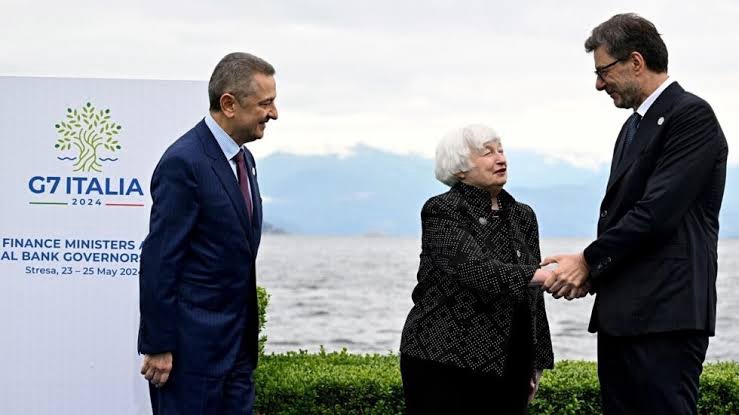G7 ministers cite ‘progress’ but no deal on Russian assets for Ukraine

G7 finance ministers said on Saturday they were making “progress” in finding ways to use profits from frozen Russian assets to help Ukraine, according to a draft statement from a summit in Italy.
A search for creative yet legally sound solutions was top of the agenda at the two-day Group of Seven meeting in Stresa, northern Italy, as Kyiv continues its urgent appeals for more funds from Western allies in its third year of war with Russia.
“We are making progress in our discussions on potential avenues to bring forward the extraordinary profits stemming from immobilised Russian sovereign assets to the benefit of Ukraine, consistent with international law and our respective legal systems,” the ministers said in a draft final statement seen by AFP.
They hope to present possible options to G7 leaders ahead of a summit in Puglia, southern Italy, on June 13-15.
They reiterated that Russian assets frozen by G7 nations “will remain immobilised until Russia pays for the damage it has caused to Ukraine”.
In the draft, they added that they were “committed to further financial and economic sanctions… including continuing to target Russia’s energy revenue and future extractive capabilities”.
“(The G7 is) ready to impose sanctions on individuals and entities that help Russia acquire advanced materials, technology, and equipment for its military industrial base,” added the statement.
The summit — attended on Saturday by Ukrainian Finance Minister Sergii Marchenko — wrapped up a day after the United States announced a new $275-million package of aid for Kyiv, part of a $61-billion military aid deal passed by Congress last month after months of delays.
Kicking off the finance summit, US Treasury Secretary Janet Yellen had urged her counterparts to embrace “ambitious options” in considering how to use the frozen Russian assets.
A debated US proposal would tap the interest generated by the 300 billion euros ($325 billion) of Russian central bank assets frozen by the G7 and EU, creating a $50-billion loan facility backed by future interest on the assets.
Last week, the European Union agreed to a more modest plan, using interest from Russian assets frozen by the bloc in what it estimates could generate up to three billion euros a year.
Finance ministers attending the talks had warned that the Stresa summit was not likely to result in a concrete deal.
On Friday, France’s Finance Minister Bruno Le Maire described it as a “political agreement in principle, not a turnkey solution”.
